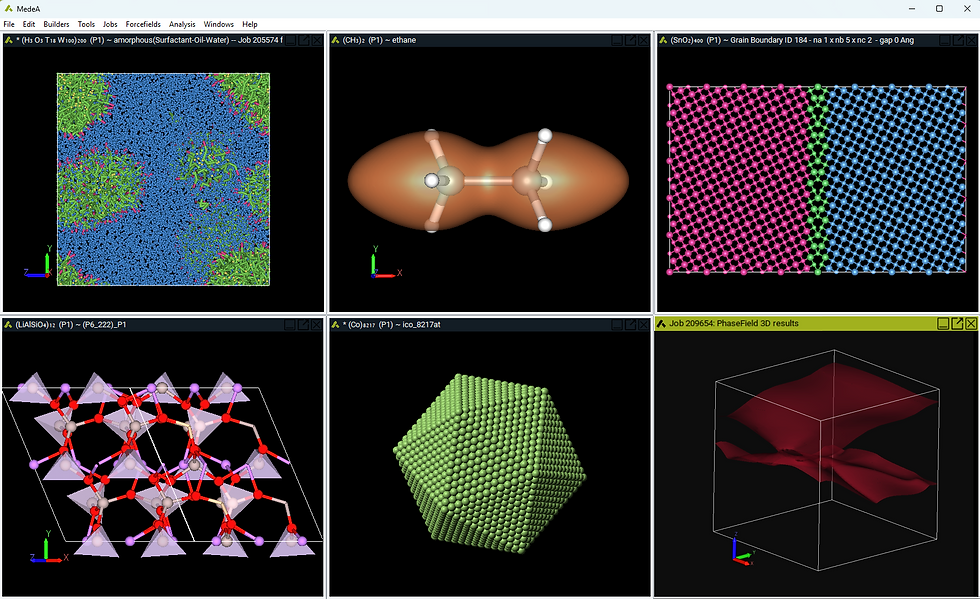Revolutionizing Materials Research: Machine-Learned Interatomic Potentials Unleash the Power of Computational Innovation
- Katherine Hollingsworth
- Jan 29, 2024
- 2 min read
Updated: Feb 22, 2024
AI and machine learning are penetrating materials computer simulations at a staggering pace. In particular, high-throughput generation of large, consistent, and accurate ab initio data combined with advanced machine-learning techniques are enabling the creation of interatomic potentials of near ab initio quality. This capability has the potential of dramatically impacting materials research: (i) while classical interatomic potentials have become indispensable in atomistic simulations, such potentials are typically restricted to certain classes of materials. Machine-learned potentials (MLPs) are applicable to all classes of materials individually and, importantly, to any combinations of them; (ii) MLPs are by design reactive force fields.
A new Focus Issue of the Journal of Materials Research on machine-learned interatomic potentials, guest edited by Volker Eyert of Materials Design, Jonathan Wormald of the US Naval Nuclear Laboratory, William A. Curtin of Ecole Polytechnique Fédérale de Lausanne, and Erich Wimmer of Materials Design, provides an overview of the state of the art of MLPs by presenting a range of impressive applications including metallurgy, photovoltaics, proton transport, nanoparticles for catalysis, ionic conductors for solid state batteries, and crystal structure predictions. These investigations provide insight into the current challenges, and they present pathways for their solutions, thus setting the stage for exciting perspectives in computational materials research.
In their introductory article, the guest editors provide a historical outline from the early days of classical potentials to the most recent developments in the field. They proceed to discuss the key features, basic ideas, and major approaches to MLPs, and they survey the literature on selected applications to explore how a combination of machine-learning techniques and quantum simulations take materials simulations to the next level of length and time scales.
Through its software, the MedeA Environment, and Contract Research services, Materials Design offers the tools and expertise to put this innovative technology at your fingertips. In particular, MedeA users benefit from a semi-automated workflow, which fully integrates high-throughput capabilities to perform ab initio calculations using MedeA VASP, the MedeA MLP Generator, and MedeA LAMMPS to apply MLPs in large-scale simulations.
#MLPInMaterialsResearch #ComputationalInnovation #MaterialsDesign #MachineLearning #InteratomicPotentials #MaterialsResearch #MedeAEnvironment #MLP #LAMMPS #AbInitioSimulation #ComputationalMaterialsScience #QuantumSimulations #ResearchFocus #InnovationInMaterials #MaterialDesignInsights #compchem #MedeA #VASP #AbInitio




Comments